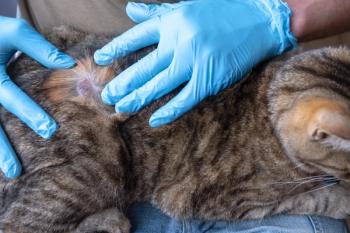
Veterinary team pay report
Getty ImagesIt's no secret that veterinary team members are not the most well-off members of society. They do the work they do for love, not money, but many of them struggle to make ends meet-especially if they're supporting a family. This dvm360 Leadership Challenge takes a close look at what veterinary team members earn, how satisfied they are in their jobs, and whether they are sticking around in the profession.
Because there's no way around it-in order for pets to receive optimal care, they need assistance from the entire veterinary team. And yet, as the demands of daily practice life get wider in scope for both veterinarians and their staffs, the compensation for these valuable team members is still stagnant. Using data from the 2014 and 2015 Firstline Career Paths Study, dvm360 brings you a first look at team pay-and why it should matter to you.
How-and what-team members are paid
Who are these team members anyway?
Firstline readers: The cream of the crop
The data presented on these pages is taken from the Firstline Career Path Survey from 2015 and 2014. These surveys are sent to readers of Firstline magazine: technicians, managers, veterinary assistants and receptionists who have been in the profession a number of years-these veterinary team members are the cream of the crop! The 2015 survey received more than 500 team member responses, and the 2014 survey received about 1,200 responses. Note: Totals may not reach 100% due to rounding.
Team members: Ready to earn more?
Denise Tumblin: Efficiency is key to profitabiity-and higher team pay
A whopping 90 percent of practice owners who work with Denise Tumblin, CPA, a consultant in Columbus, Ohio, say a primary objective is to be more profitable so they can pay team members more. So how exactly do they do that?
Part of the problem, Tumblin says, is that many practices are overstaffed with underqualified people. Owners should hire fewer highly skilled employees, pay them more and maximize the work they do. Most hospitals would be better off with one $16/hour team member versus two $8/hour employees, she says.
In this approach, however, efficiency is key. Many practices think they need more people because they're inefficient. Want proof? One of Tumblin's Benchmarks studies showed that practices with a manager had lower staff costs-presumably because they focused on effeciency. Here are some of Tumblin's recommenations for practicing lean:
> Push work down to the lowest level. If you have a credentialed technician, she can do more for you than a veterinary assistant.
> Provide training. Be sure team members are able to increase their skills so they can take on more responsibility.
> Scrutinize processes for time-sucking weak points. For example, time spent sorting through unlabeled drugs on the shelf adds up.
> Perform a time audit. This effective tool can help identify where tasks are taking too long and standardize how long they should take.
> Automate. Electronic records prevent lost time spent hunting through paper files. Buy computers and train your staff to utilize them fully.
Here's an example: Tumblin works with a veterinary hospital in Hawaii that's a large 24-hour practice in a small building bringing in lots of revenue. The seven doctors produced about $716,000 each, and production is 21 percent of revenue. It has a 4.9 staff-to-doctor ratio. This hospital has figured out some keys to leveraging its team effectively.
Team members' job satisfaction
Finally ... What team members say
Why I WILL be in the profession in 10 years
I love working with animals and using what I have worked hard to learn. Pay is not nearly as important to my job satisfaction as knowing that I am helping pets and people, and challenging myself and learning!
This is where my heart is.
Yes, there are always days when you just want to bang your head on a wall, or if you get anal glands on your scrubs one more time you are going to scream. Yet, overall the patients who are happy to see us, along with their “parents,” more than make up for all of the frustrations.
Why I WON'T be in the profession in 10 years
Being single with a mortgage and other financial responsibilities, I am struggling to make ends meet just to work in the field I love.
The pay and lack of benefits and lack of appreciation by owner.
The work I do is physically demanding, and I do not earn enough money to work in my profession long term.
Newsletter
From exam room tips to practice management insights, get trusted veterinary news delivered straight to your inbox—subscribe to dvm360.




